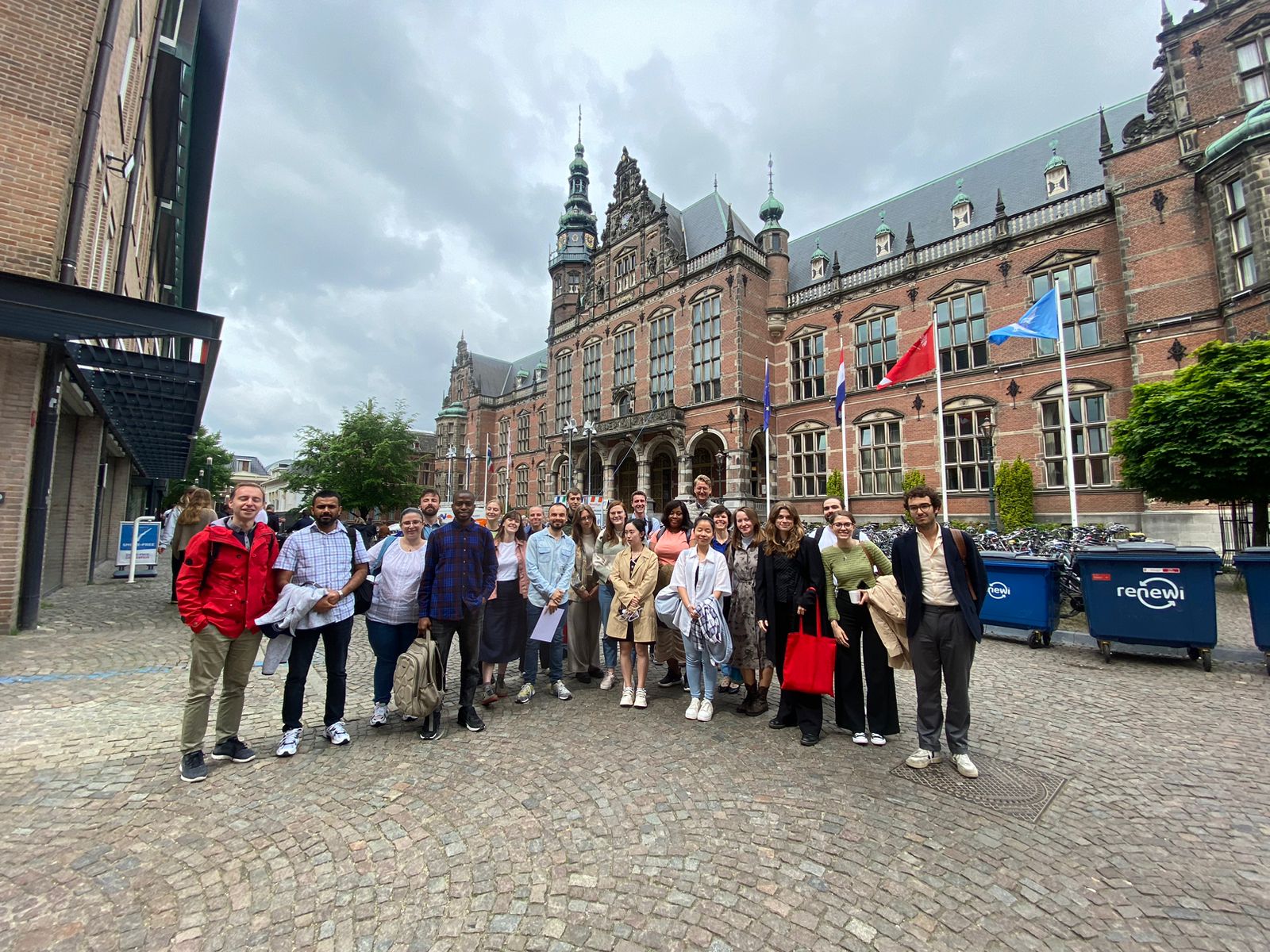To broaden and develop the professional skills of our team members and widen their scientific network and cultural experiences, the BRT encourages its students to embark on internships and summer school experiences. These experiences are connected to their scientific journey and enable them to have hands-on, practical and in-field experiences, which are critical to their future careers. They help to hone their communication, time management, teamwork, problem-solving, and leadership skills, all of which are highly valued assets in young scientists.
Our PhD student, AbdulAzeez Shobajo, shares insights from his summer school experience at the University of Groningen in the Netherlands.
Enjoy reading as he takes you on his summer school journey!
The discourse about sustainable development is not merely on the lips of key players; the time has never been more right to save the Earth from the damaging activities of mankind and prevent us from tearing the roof from over our heads. Owing to this, I had the privilege of representing the BRT at the Public Participation in Energy Transition Summer School, held at the prestigious University of Groningen in the Netherlands. The University of Groningen, which is ranked among the top 100 universities globally, provided a vibrant and intellectually stimulating environment for a diverse group of scholars to discuss and explore sustainable energy transitions.
An Immersive Learning Experience
The event, set against the picturesque backdrop of Groningen—a city celebrated for its high quality of life and eco-friendly practices—brought together experts from various fields such as energy law, citizen participation, economics, renewable energy, and sustainable development. The Summer School was collaboratively hosted by the University of Groningen, Ameland Energy Corporation, the New Energy Coalition, and the Public Participation Centre.
One of the program highlights was meeting with leaders from Ameland Energy Corporation and visiting one of the largest solar parks in the Netherlands. This park, with its 23,000 solar panels, supplies electricity to approximately 3,500 residents in 1,700 households on Ameland Island. We also explored the Ameland Tidal Kite Energy Project site, where innovative work is being done to combine kite technology with tidal energy to achieve net-zero carbon emissions for the island by 2035.
Collaborative Projects and Real-Life Scenarios
Throughout the summer school, we worked in groups to explore geothermal energy potential and strategies to enhance public participation in a geothermal district heating system for the entire island. Collaborating with scholars from diverse fields on real-life energy transition scenarios was incredibly inspiring. We not only shared our expertise but also learned from each other’s perspectives.
Public Participation: A Key to Energy Transition
One of the key takeaways from the summer school was the importance of public participation in energy transitions. It should not be viewed merely as a top-down approach to encourage sustainable energy adoption but, more importantly, as a bottom-up process that considers the altruistic, egocentric, biospheric, and hedonic values of individuals in every community. People have different values, and energy citizenship is about people’s rights to and responsibilities for a just and sustainable energy transition.
Exploring Ameland Island
Beyond academic activities, we enjoyed exploring the beautiful Ameland Island, known for its picturesque landscapes and vibrant culinary scene. This experience further highlighted the importance of integrating local culture and community interests into energy transition projects.
Future Directions
The summer school emphasized the catalyzing potential of community energy initiatives (CEIs) to attract those weakly motivated, change members' motivation, and transfer this motivation to the wider community. By encouraging local involvement and ownership, CEIs can significantly enhance the adoption of renewable energy technologies and sustainable practices. This bottom-up approach ensures that energy transitions are equitable and inclusive, reflecting the diverse values and needs of the community.
Moving forward, it is crucial to develop actionable projects that build on this momentum. For instance, follow-up activities could include pilot projects on Ameland Island to test and refine geothermal energy solutions with robust community involvement. Additionally, sharing these insights through workshops and publications can help replicate successful models in other regions.
Concluding Thoughts
My journey from Prague to Groningen was not just an academic exercise but a great learning experience. The Public Participation in Energy Transition Summer School highlighted the importance of community involvement and the transformative power of collective action. I look forward to applying these insights in my work and contributing to a sustainable future.
Let's continue to harness the power of public participation in energy transitions, ensuring that every community member's voice is heard and valued. Together, we can drive the shift towards a sustainable and just energy future
For more details on BRT activities, subscribe to our newsletter or follow us on social media for regular updates and highlights.


